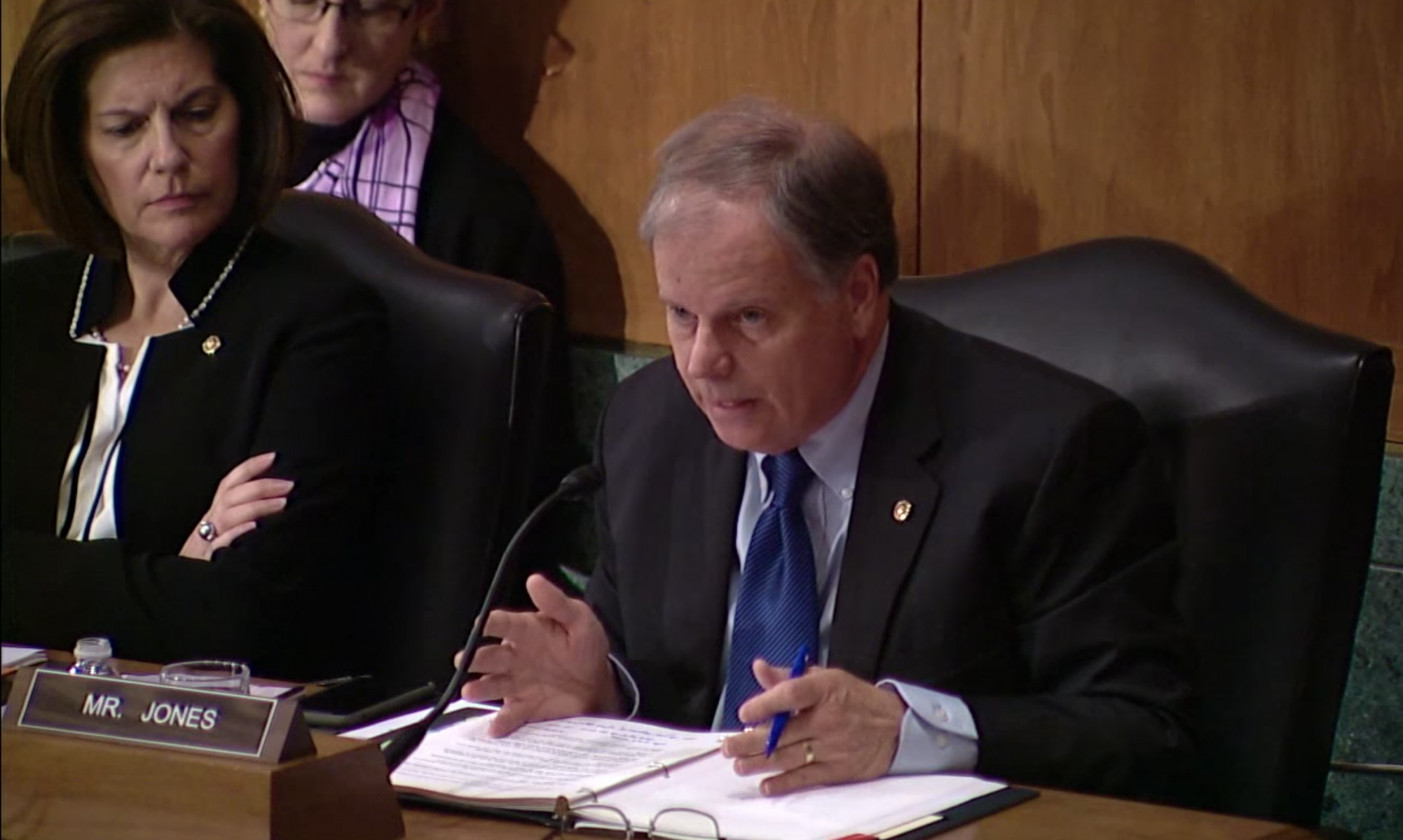The U.S. House of Representatives overwhelmingly has approved legislation led by Senator Doug Jones (D-Ala.) and Senator Ted Cruz (R-Texas) to require the review, declassification, and release of government records related to unsolved criminal civil rights cases. Senators Jones and Cruz have led a months-long bipartisan effort to provide public access to unsolved civil rights crime documents through their Civil Rights Cold Case Records Collection Act.
Congressman Bobby L. Rush (D-Illinois) led the companion legislation in the House of Representatives.
Their bill will now go to President Donald J. Trump’s desk to be signed into law.
“This legislation has made a remarkable journey from its conception in a high school classroom to its passage in Congress today,” Sen. Jones said. “From the students who first brought their draft bill to my attention years ago to the journalists and researchers who study these civil rights cold cases to my colleagues Senator Ted Cruz and Representative Bobby Rush, this was truly a team effort to do the right thing by these victims and their families. While we can’t change history, we can and should do whatever we can to seek truth and healing. Today, we took an important step forward in the effort to ensure justice delayed is not justice denied.”
“This week has been a historic week for justice,” Senator Cruz said. “Crimes committed against Americans seeking their rightful place in the American dream during the civil rights movement too often went unsolved. But this bill seeks to right these historic wrongs by disclosing case records so that the public may pursue leads and document these tragic events. I am grateful my colleagues in the House recognize the importance of this issue, and am proud to have worked with Sen. Jones on this bipartisan bill. It is my hope that, with additional sunlight to these cold cases, there will be revelation, justice, and closure where it has long been lacking.”
“I was delighted when Senators Jones and Cruz introduced companion legislation to my bill, H.R. 1272, and I am even more excited to see that this bill is on its way to the President’s desk,” Congressman Rush said. “With the passage of this legislation, families and communities that have waited too long for answers about the loss of loved ones may finally have the chance for closure. This bill came to fruition because of the hard work of a group of students from Hightstown High School in New Jersey and their teacher, Mr. Stuart Wexler, who started this legislative journey when they first visited my office in 2016. I thank these devoted students for their dedication to this cause and applaud them for their diligence.”
Senator Jones is a former U.S. Attorney for North Alabama. As a U.S. Attorney he successfully prosecuted two of the former KKK members responsible for the bombing of the 16th Street Baptist Church during the Civil Rights Movement era.
Sen. Jones has long been an advocate for greater access to civil rights cold case records.
In 2007, Jones testified to the House Judiciary Committee in support of the Emmett Till Unsolved Civil Rights Crimes Act that established a special initiative in the U.S. Department of Justice to investigate civil rights cold cases. He spoke about the difficulty of prosecuting these cases so many years after the crimes were committed and pointed to the importance of sharing information in order to find the truth.
This legislation was modeled after the President John F. Kennedy, Jr. Assassination Records Collection Act of 1992, which created an orderly and effective process for reviewing, declassifying, and releasing thousands of documents related to the assassination of President Kennedy. The bill was originally envisioned by students from Hightstown High School in Hightstown, New Jersey, and their teacher, Mr. Stuart Wexler
The Civil Rights Cold Case Records Collection Act of 2018 will require the National Archives and Records Administration (NARA) to establish a collection of cold case records about unsolved criminal civil rights cases that government offices must publicly disclose in the collection. The bill would also establish a Civil Rights Cold Case Records Review Board to facilitate the review, transmission to NARA, and disclosure of government records related to such cases.
Jones defeated former Alabama Chief Justice Roy Moore last year in the 2017 special election.


















































